detail profile carlos cunha filho

Carlos Cunha Filho
Carlos Cunha
atau dikenal sebagai
Riwayat Hidup
Carlos Cunha Filho (Porto Alegre, 1950) é um ator brasileiro, que construiu sua carreira no teatro, cinema e televisão do Rio Grande do Sul.
Em alguns trabalhos, foi creditado como Carlos Cunha.
Formado em Direção Teatral (1977) e Educação Artística (1986) pela UFRGS, começou a fazer teatro na metade dos anos 1970, no Grêmio Dramático Açores, grupo experimental do Teatro de Arena.
Desde então, participou de mais de trinta espetáculos, passando a destacar-se a partir de sua interpretação do imigrante italiano Giovanni Baracheta, em "Bella Ciao" (1989), peça de Dario Fo dirigida por Néstor Monasterio.
Por este espetáculo, Cunha recebeu o Prêmio Quero-quero de melhor ator da temporada, concedido pelo SATED, sindicato dos artistas do Rio Grande do Sul, além do prêmio máximo de interpretação no Festival Nacional de Teatro de São José do Rio Preto.
Foi duas vezes vencedor do Troféu Açorianos, principal premiação teatral de Porto Alegre: como melhor ator por "King Kong Palace" (1996), peça do autor chileno Marco Antonio de la Parra; e como melhor ator coadjuvante por "Édipo" (2008), peça de Sófocles adaptada e dirigida por Luciano Alabarse.
Cunha tem ainda mais de trinta atuações em filmes e especiais de televisão, incluindo os longas-metragens "O Homem que copiava" (2003), de Jorge Furtado, em que interpreta o pervertido pai da personagem de Leandra Leal; e "Antes que o mundo acabe" (2010), de Ana Luiza Azevedo, em que faz o acaciano padre-diretor da escola onde os protagonistas estudam.
Em 2004, Carlos Cunha Filho interpretou Getúlio Vargas no especial "O dia em que o Brasil parou", da RBS TV, que lembrava os 50 anos do suicídio do presidente.
Desde 2007, faz parte do elenco de peças radiofônicas da Radioativa Produtora.
Info Pribadi
Peran Yang Di Mainkan Carlos Cunha Filho
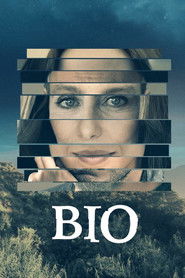 The film tells the story of...
The film tells the story of...Bio 2017
The film tells the story of a man who was born in 1959 and died in 2070, told by people who knew him and somehow contributed to his trajectory.
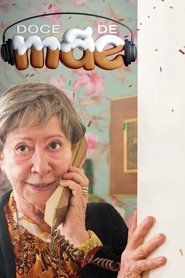 Picucha may seem oldfashioned but she...
Picucha may seem oldfashioned but she...Sweet Mother 2012
Picucha may seem old-fashioned, but she has modern ideas and a great sense of humor. As the matriarch of a big family, she is involved in the daily lives of her children, grandchildren and other relatives. Undeterred by the typical problems of old age, she uses her many years of experience to solve problems in the best way possible.
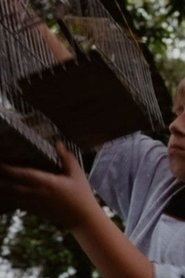 Ricardo is 10 years old lives in...
Ricardo is 10 years old lives in...O Velho do Saco 1999
Ricardo is 10 years old, lives in the interior of Rio Grande do Sul and has nightmares about Velho do Saco, sort of a Brazilian bogeyman, “who takes out the eyes of misbehaving children”. It is not easy to distinguish truths and lies when the loss of innocence is confused with the loss of sight.
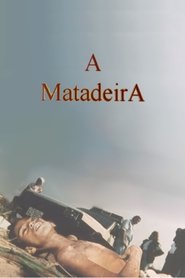 Canudos was a small village in...
Canudos was a small village in...A Matadeira 1994
Canudos was a small village in northeastern Brazil, founded by the messianic leader Antônio Conselheiro and massacred by a powerful army until the death of the last of its 30,000 inhabitants, on October 5, 1897. The film tells the story of the Canudos massacre from an English cannon, nicknamed by the backlands people "A Matadeira", which was transported by twenty teams of oxen through the backlands to fire a single shot.
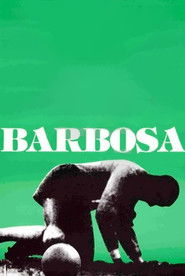 Thirtyeight years after the 1950 World Cup...
Thirtyeight years after the 1950 World Cup...Barbosa 1988
Thirty-eight years after the 1950 World Cup, a man went back in time to prevent the goal that defeated Brazil, destroyed his childhood dreams and ended goalkeeper Barbosa's career.
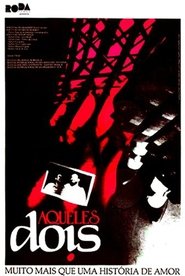 Raul and Saul work at the...
Raul and Saul work at the...Aqueles Dois 1985
Raul and Saul work at the same office. Raul, outgoing and good-natured, comes from a broken marriage. Saul is shy, with a critical and bitter disposition, is recovering from a failed suicide attempt. In spite of their differences, they become quite good friends. But their colleagues begin to wonder whether there's something beyond friendship between them.
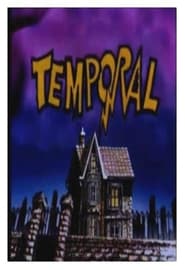 In the same house on the...
In the same house on the...Temporal 1984
In the same house, on the same night, two groups meet. One, made up of very serious gentlemen, members of a religious-monarchist order. The other, a bunch of crazy people in animal costumes, at a party with sex and rock’n’roll. When the storm starts and the lights go out, anything can happen.
 Nadi is an android with citizenship...
Nadi is an android with citizenship...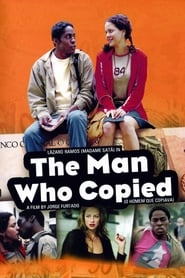 A young photocopier operator becomes infatuated...
A young photocopier operator becomes infatuated...